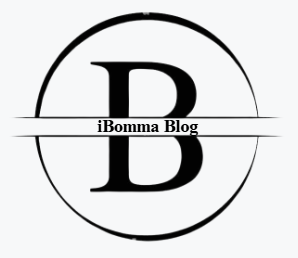Introduction to the New York Times Word of the Day
Are you looking to elevate your language skills and impress friends with your vocabulary? The New York Times Word of the Day is a fantastic resource that can help you do just that. Each day, this feature introduces a new word, complete with its meaning and usage examples. Whether you’re an avid reader or simply want to sound more articulate in conversation, incorporating these words into your daily routine can make a significant difference. Let’s explore how this simple practice can expand your linguistic horizons and enhance your communication prowess.
Importance of Expanding Vocabulary
Expanding your vocabulary is more than just learning new words. It enriches communication and allows for deeper connections with others.
When you understand a broader range of terms, expressing thoughts becomes easier. You can articulate ideas with precision, making conversations more engaging.
A robust vocabulary also enhances reading comprehension. Encountering complex texts becomes less daunting when you recognize the terminology used. This skill can lead to improved academic performance and greater enjoyment in literature.
Moreover, mastering new words builds confidence. Whether in writing or speaking, having varied language at your disposal empowers you to express yourself authentically.
In professional settings, a well-developed vocabulary sets individuals apart. It signals intelligence and competence, opening doors to opportunities that might otherwise remain closed.
How to Use the NYT Word of the Day
Using the NYT Word of the Day is simple and rewarding. Start by subscribing to their daily email or checking their website. This way, you’ll receive a new word every morning.
Once you have your word, take a moment to understand its meaning. Read through any example sentences provided. Context is key in grasping how it fits into everyday language.
Make it personal by using the word in conversation or writing throughout your day. Try crafting sentences that relate to your experiences or interests.
Consider keeping a vocabulary journal where you jot down new words and their meanings along with examples of usage. Reviewing this regularly can reinforce your learning.
Engaging with others about these words can enhance retention too. Share what you’ve learned on social media or discuss it with friends who are also interested in expanding their vocabularies.
Examples of Words and Their Meanings
The NYT Word of the Day introduces a plethora of intriguing words. Take “sonder,” for instance. It captures the realization that each random passerby has a life as vivid and complex as your own.
Another captivating word is “petrichor.” This term refers to the earthy scent produced when rain falls on dry soil, evoking nostalgia and warmth in those who encounter it.
Then there’s “ineffable.” This beautiful adjective describes something so extraordinary that it cannot be expressed in words—a perfect fit for moments that leave us speechless.
Consider also “limerence.” It conveys an intense romantic attraction characterized by obsessive thoughts about someone, often fluttering hearts and daydreams.
These examples illustrate how enriching vocabulary can transform everyday conversations into poetic exchanges filled with depth.
Tips for Incorporating New Words into Daily Vocabulary
To effectively incorporate new words into your daily vocabulary, start by making them personal. Use the NYT Word of the Day in sentences that relate to your life or interests. This makes it easier to remember.
Try keeping a journal dedicated to new words. Write down their meanings and use them in context throughout your day. Revisiting these entries reinforces learning.
Engage with friends or family by sharing one word each day. Challenge each other to use it in conversation. It’s a fun way to learn together.
Additionally, create flashcards for quick reference. Visual aids can enhance retention and make recalling definitions simpler.
Don’t shy away from reading more diverse materials—books, articles, or poetry expose you to varied language styles and contexts where new words thrive.
Benefits of Regularly Learning New Words
Regularly learning new words opens doors to enhanced communication. When you have a rich vocabulary, expressing thoughts becomes effortless and precise.
Understanding subtle differences in meanings allows for more nuanced conversations. This can lead to deeper connections with others.
Cognitive benefits also come into play. Expanding your vocabulary stimulates your brain, keeping it active and engaged. It’s like a workout for your mind.
Moreover, an extensive word bank boosts confidence in both written and spoken language. You’ll feel more at ease during discussions or when composing emails and essays.
Acquiring new words exposes you to diverse cultures and perspectives embedded within language itself. Each word carries history and context that broadens your worldview, enriching personal growth along the way.
Conclusion
Expanding your vocabulary can be a rewarding journey. The NYT Word of the Day is an excellent tool to enrich your language skills and keep your mind engaged. By dedicating just a few minutes each day, you can transform how you express yourself and communicate with others.
As you embrace new words, remember to practice them in conversation or writing. This not only reinforces their meanings but also builds confidence in using them naturally. Each word holds the potential for clarity and creativity, enhancing both personal and professional interactions.
The benefits of incorporating this daily exercise into your routine are vast. A richer vocabulary allows for more nuanced discussions, aids comprehension when reading complex texts, and even improves cognitive function over time.
So why wait? Start exploring the NYT Word of the Day today and watch as it opens up a world of linguistic possibilities for you!






